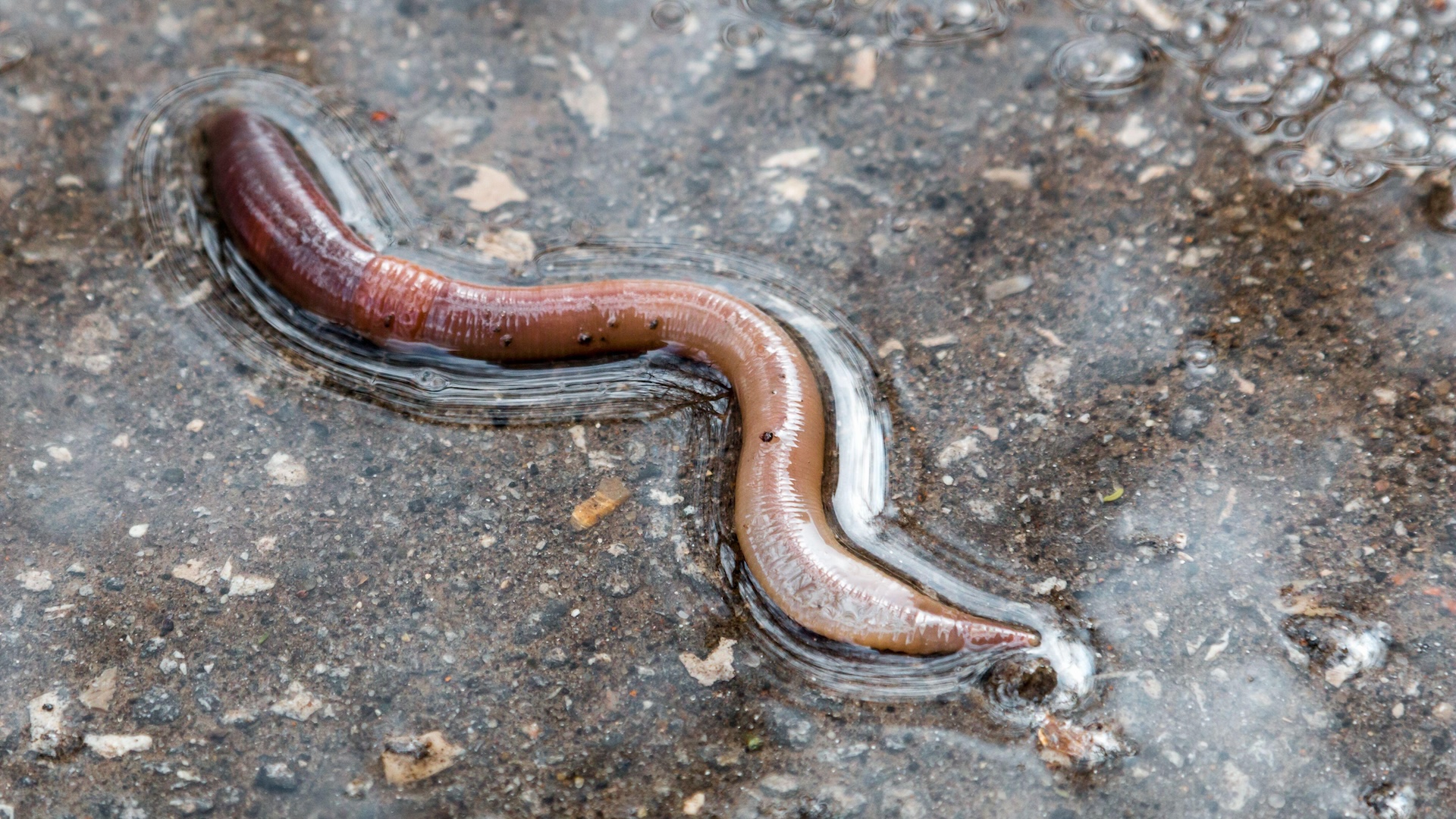
On a rainy day, you'll often see lots of earthworms on sidewalks and roads. But what makes the worms crawl away from the safety of the soil when it's raining?
Some people assume worms come to the surface so they do not drown in their burrows. However, "worms don't have lungs like we do," Thea Whitman, a soil scientist at the University of Wisconsin-Madison, told Live Science.
Instead, earthworms absorb oxygen through their skin, and they can do so from water as well as from air. "I have kept earthworms in water for days, and they do not die," Kevin Butt, an earthworm ecologist at the University of Central Lancashire in Preston, England, told Live Science.
In fact, a 1956 study found that five earthworm species "were all able to live for 31 to 50 weeks in soils that were totally saturated with water," Whitman said. "So long as there is oxygen in the water, these worms will still be able to breathe."
Still, Whitman noted that a 2008 study of two earthworm species discovered that oxygen consumption might play a role in why some, but not all, earthworms tend to surface on rainy days.
"The species that required higher oxygen levels was more likely to crawl out of its burrow during rainy conditions," Whitman said. "The species that didn't require such high oxygen levels was less likely to come to the surface. Thus, some species of worms are more susceptible to low oxygen levels, and may be more likely to leave their burrows due to a heavy rain, while others may remain happily belowground."
Related: Do animals really have instincts?
Another popular theory is that the "vibrations from the rain are perceived by the worms to be similar to the vibrations that normally warn them a mole is coming," Whitman said. "The idea is that the worms may come to the surface during rain to escape what they think is a predator."
However, Butt found this idea highly unlikely. The actions of a predator such as a mole in the soil would not be rhythmic, so they would "be distinguishable by the earthworm from that of rain," he said.
Another possibility is that "rainwater in the soil harms the worms in some way — for example, if the rain were acidic, or if harmful chemicals, such as heavy metals, were released," Whitman said.

Although the 2008 study did not find evidence that harmful compounds in rainwater drove worms out of the soil, Whitman did note that worm researchers sometimes use chemicals to gather worms. "Pouring a mixture of mustard powder and water onto the soil irritates the worms and drives them to the surface, where they can be collected and analyzed," she explained.
Butt suggested the most likely explanation is that earthworms surface on rainy days to move more quickly on the wet ground, instead of slowly burrowing through soil as they usually do. "They require moist environments to survive, and so wet days could allow for them to travel above the soil," Whitman said. Earthworms might make such journeys to mate or migrate, she added.
This explanation could help shed light on a practice called "foot trembling," which is seen in some birds and reptiles, Butt said. Instead of generating sounds by moving within the soil as moles do, these animals apparently stomp on the surface, generating vibrations that may mimic those from rain. These vibrations "can cause earthworms to come to the surface and fall prey to the predator," Butt said.
A tradition known as "worm grunting," "worm fiddling" or "worm charming" takes advantage of this earthworm response to vibrations. Using a stick or a saw, people generate vibrations in the soil to entice worms to the surface, where they are harvested for bait. In addition, worm charming "is now used competitively in some instances," Butt said, such as the annual "Worm Gruntin' Festival" in Sopchoppy, Florida.







